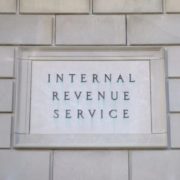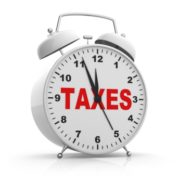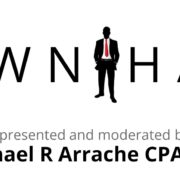Updates and New IRS guidance on Tax Deadline Extension
IRS provides additional extensions and NOL guidance (04-09-20)
The IRS has now expanded its extension relief to most taxpayers who had income tax filing and/or payment obligations due on or after April 1, 2020, and before July 15, 2020, including second-quarter estimated tax payments that fall within this period. (IRS Notice 2020-23)
These taxpayers will now have until July 15, 2020, to file and pay, or to request an additional extension.
Note: Even though calendar-year partnerships and S corporation returns are due March 15, 2020, they are specifically listed in the Notice as having an extension until July 15, 2020.
The expanded extension relief specifically applies to the following payments and filings:
- Individual income tax payments and return filings (Form 1040 series);
- Corporate and S corporation fiscal and calendar returns and payments (Form 1120 series, including Form 1120S);
- Partnership calendar-year and fiscal year returns (Form 1065);
- REMIC Form 1065 returns;
- Estate and trust income tax payments and returns (Form 1041 series);
- Estate and generation-skipping transfer tax payments and return filings (Form 706 series);
- Form 8971, Information Regarding Beneficiaries Acquiring Property from a Decedent, and any supplemental Form 8971;
- Gift and generation-skipping transfer tax payments and return filings (Form 709);
- Estate tax payments of principal or interest due as a result of extensions of time to pay estate taxes under IRC §§6161, 6163, or 6166, and annual certification requirements under IRC §6166;
- Exempt organization business income tax and other payments and return filings on Form 990-T; and
- Excise tax payments on investment income and return filings on Form 990-PF and Form 4720.
Requests to extend filing deadlines beyond July 15 must be filed by July 15, and extension payments must be made by July 15 to avoid interest and penalties. Filing deadlines are not extended beyond the original extended filing deadlines: September 15 or October 15 for calendar-year taxpayers.
The filing extension relief applies to:
- All corresponding schedules and other forms that are filed as attachments, such as Schedule H, Schedule SE, and Forms 3520, 5471, 5472, 8621, 8858, 8865, and 8938;
- All elections that must be made on a timely filed form or attachment; and
- Installments of any repatriation tax.
Notice 2020-23 is available at:
www.irs.gov/pub/irs-drop/n-20-23.pdf
The IRS also released Notice 2020-26 and Rev. Proc. 2020-24, which provide the following guidance regarding NOL carrybacks:
- For NOLs from a taxable year that began during 2018 (and ended on or before June 30, 2019), taxpayers have until June 30, 2020, to file tentative refund requests using Form 1045 (for individuals, trusts, or estates) or Form 1139 (for corporations), which requires the IRS to process the request within 90 days. Write “Notice 2020-26, Extension of Time to File Application for Tentative Carryback Adjustment” on the top of the form;
- If the taxpayer is a corporation, the deadline to file a tentative refund claim for a minimum tax credit for 2018 is December 30, 2020, but in order to file one application for a tentative refund for both the NOL carryback and the minimum tax credit at the same time, the taxpayer must do so by the earlier of the two deadlines. Write “Notice 2020-26, Extension of Time to File Application for Tentative Carryback Adjustment” on the top of the form; and
- Taxpayers who do not want to carry back 2018 or 2019 NOLs must attach a statement to their 2020 return to make this election. They will attach a separate statement for each year’s loss. The attachment must state that the taxpayer is electing to apply §172(b)(3) under Rev. Proc. 2020-24 and the taxable year for which the statement applies. These elections are irrevocable.
To view Notice 2020-26, go to:
www.irs.gov/pub/irs-drop/n-20-26.pdf
For Rev. Proc. 2020-24, go to:












